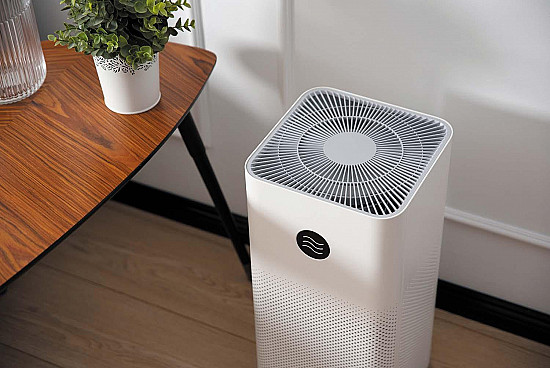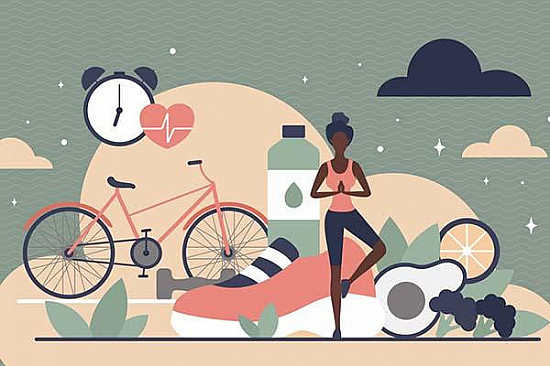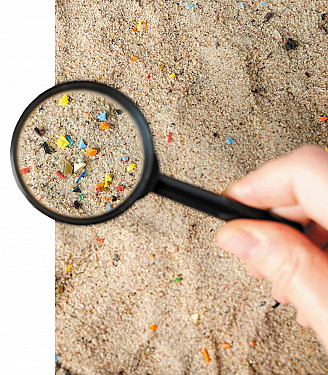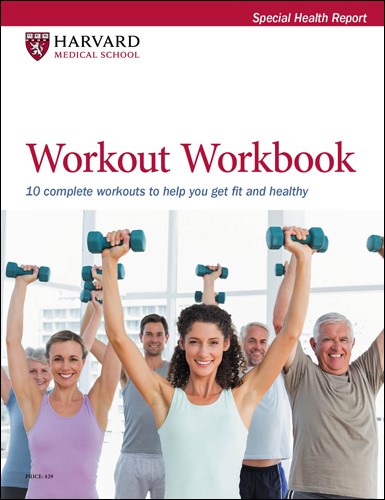Protect your heart during the dog days of summer
Hot, hazy, and humid outside? Exercise caution during outdoor activities.
- Reviewed by Christopher P. Cannon, MD, Editor in Chief, Harvard Heart Letter; Editorial Advisory Board Member, Harvard Health Publishing

During the summer of 2023, record-breaking high temperatures scorched many regions of the United States. Not surprisingly, emergency department visits for heat-related illnesses also rose over that time period, according to the CDC. This worrisome trend is expected to continue as climate change ushers in longer, hotter, and more frequent episodes of extreme heat.
People who have underlying health problems — especially cardiovascular disease — are more vulnerable to the hazards of high temperatures. Air pollution, another threat to the heart, can also pose problems during the summer months.
Why heat is hard on the heart
"People who have or are at risk for cardiovascular disease should be a bit more cautious exercising outside in hot weather," says Dr. Prashant Rao, a sports cardiologist at Harvard-affiliated Beth Israel Deaconess Medical Center. When the temperature soars, exercise is more taxing because your heart has to pump extra blood not only to your muscles but also to your skin to help radiate away excess heat, he explains. But when the air temperature approaches body temperature (around 98° F), this process no longer works. Sweating also helps cool your body: heat from your body turns liquid sweat into water vapor. This works well on dry days, but when humidity levels climb above 75% or so, the water vapor already in the air makes evaporation more difficult.
Hot-weather hints
"It's still important to exercise during warm weather, but you may need to crank down your intensity a couple of notches," says Dr. Rao. He offers these additional tips for exercising safely during heat waves:
Avoid outdoor activity during the hottest part of the day. Temperature usually peaks between noon to 3 p.m., so consider doing outdoor exercise in the early morning or early evening—but away from traffic-heavy areas (see below).
Choose the right attire. Lightweight, light-colored clothing made from sweat-wicking material will keep you cooler.
Stay hydrated. Drink water throughout the day, but especially when you're active outdoors. Plain water is fine, but if you're exercising in the heat for more than an hour (for instance, a long tennis match or round of golf) sports drinks are a better option. These beverages contain electrolytes — minerals such as potassium, sodium, and magnesium — that can replenish what you lose from sweating. People who take blood pressure medications (especially diuretics) are more prone to becoming dehydrated in hot weather, so they should be extra careful to drink plenty of water, says Dr. Rao.
Exercise in water or work out in an air-conditioned space. Sometimes it's simply uncomfortable to even walk outdoors. On those days, consider swimming or doing water aerobics, or head to an air-conditioned fitness center.
Air quality concerns
During the summer, high temperatures speed up the chemical reactions that create air pollution. Smog and haze result from a combination of dust, water vapor, and tiny airborne particles from industrial power plants, vehicle emissions, and wildfires. Wildfires, which tend to strike in summer and early fall, are now more frequent due to climate change and play an increasing role in overall air quality.
Air pollution contains invisible particles less than 2.5 microns in diameter — so minuscule they aren't trapped by filters in your nose and upper airway. Known as PM2.5, they pass through your lungs into your bloodstream, where they can interact with receptors and trigger nerves that help regulate your heart rate and breathing. These particles also spur inflammation — the outpouring of immune system cells and other substances that accelerate atherosclerosis (buildup of fatty plaque inside the arteries).
Even low levels of air pollution appear to increase the risk of heart attack, stroke, and irregular heart rhythms. That's why it's worth keeping tabs on the air quality in your area. Local news outlets sometimes report this information, which is also featured on many weather-based smartphone apps and available from the Environmental Protection Agency at AirNow.
There's still a lot of learn about air pollution's effect on the heart and the best prevention strategies. Still, people should heed the warnings about staying inside if the air quality is poor, and be mindful of when and where they exercise, says Dr. Rao.
"When my primary care provider recently asked me about my exercise routine, I told him I run by Charles River as part of my marathon training. He pointed out that the route is right near a very busy road and that I should avoid running there during rush hour," says Dr. Rao.
Image: © PeopleImages/Getty Images
About the Author

Julie Corliss, Executive Editor, Harvard Heart Letter
About the Reviewer

Christopher P. Cannon, MD, Editor in Chief, Harvard Heart Letter; Editorial Advisory Board Member, Harvard Health Publishing
Disclaimer:
As a service to our readers, Harvard Health Publishing provides access to our library of archived content. Please note the date of last review or update on all articles.
No content on this site, regardless of date, should ever be used as a substitute for direct medical advice from your doctor or other qualified clinician.
















